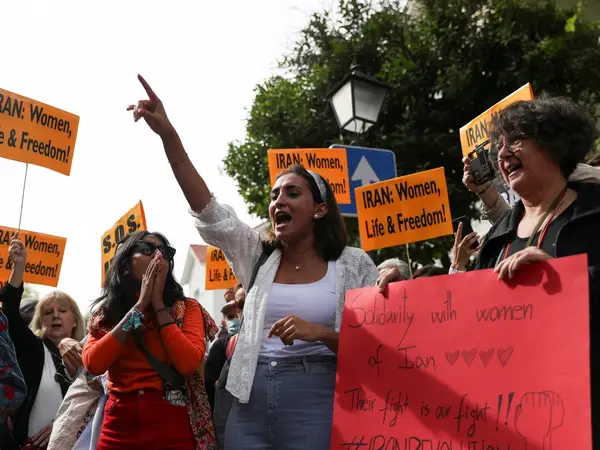Iranian activists are campaigning for nationwide strikes as a next step in their protests, while student in two dozen universities say they will boycott classes.
The “NationwideStrikes” hashtag has started trending on Twitter since Tuesday. Campaigners say protests against the regime will only succeed if businesses, students and civil servants go on strike and paralyze the system as they did in the Revolution of 1979 which overthrew the monarchy.
In the past few days student groups in many universities have issued statements saying they will refuse to attend classes in protest to the arrest of their classmates and others on the streets, and violation of their right to peaceful protests. Students have also urged their professors to condemn government violence and boycott classes until all detained students are freed.
A statement issued by a group of students at Tehran Medical Sciences University condemned government violence against protesters and use ambulances for transporting security forces and detainees in the protests.
The Iranian academic year started September 23, but authorities have cancelled all classes at several major universities this week including Tehran University. Monday and Wednesday were also public holidays in Iran where the week starts on Saturday, but these have not stopped students from staging big rallies on campuses.
Authorities have offered online classes although the government has shut off or slowed down internet access since the protests began nearly two weeks ago and have also arrested dozens of students on campuses and at their homes.
Students often chant “Women, Life, Freedom” -- which has become the signature slogan of the protests -- and demand the release of all political prisoners, freedom, and even shout against the regime and its Supreme Leader Ali Khamenei.
On Wednesday students protesting at Shiraz Medical Sciences University complemented the signature slogan with a new one: “Men, Homeland, Progress”. They also chanted “We Will Fight, We Will Die, We Will Take Iran Back!” as well as slogans against clerics. Students chanted “Scoundrels, Scoundrels” when security forces attacked their rally and booed them.
Political figures, including Iran's exiled Prince Reza Pahlavi, artists, and activists abroad have also been encouraging strikes aimed at toppling the Islamic regime.
Unlike 2019, the Revolutionary Guard (IRGC) has so far not been directly deployed on the streets, leaving the matter to the Police and it's anti-riot units to deal with protesters in over 100 cities and towns across the country.
Protesters have waged a war of attrition against the security forces by protesting mainly in smaller groups, much like flash mobs, in various neighborhoods every night. Tehran police have been deployed "24 hours a day" and many have had little sleet, said the Iranian judiciary chief, Gholamhossein Mohseni Ejei, during a visit to the headquarters of Tehran Police Sunday, in a video posted by the Judiciary’s official website, Mizan Online.
Rumors abound that Khamenei is seriously ill and some claim that his health situation has prevented the security forces from using a heavier hand to quell the protests.
Khamenei who has not appeared in public since September 21 did not make any mention the protests in a speech to military commanders and to the death in custody of Mahsa Amini, the young woman whose death sparked the demonstrations nearly two weeks ago.
The uprising has already affected the livelihoods of millions of Iranians who run online businesses or use Instagram. Authorities blocked access to Instagram, the only major social media platform not blocked in Iran before the protests, and have consistently resorted to intermittent internet blackouts to prevent people from communicating and sharing footage of protests.
